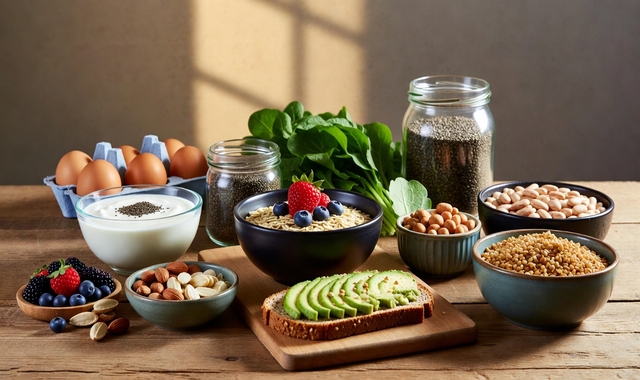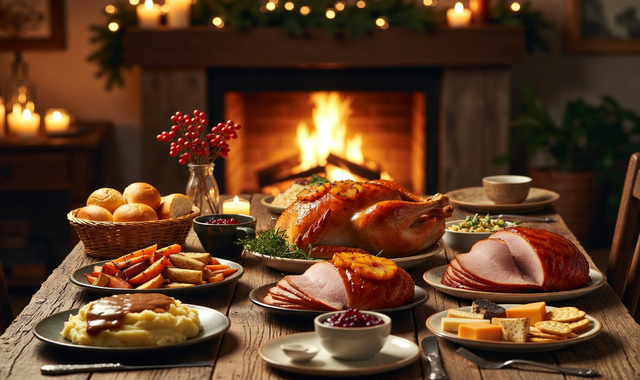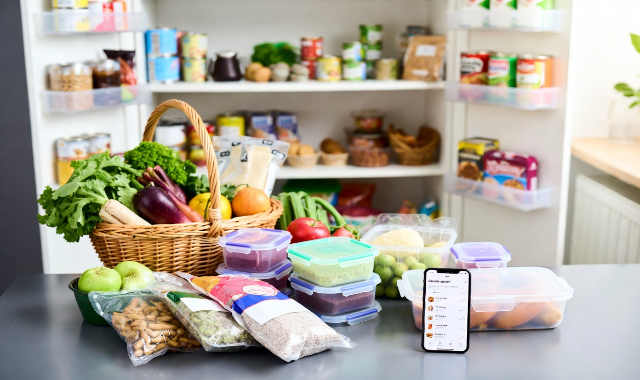
Common Fridge Mistakes That Spoil Food Fast
Understanding Why Food Spoils Quickly in Refrigerators
Probably everyone has at least once asked the question: "Why does food spoil quickly in the refrigerator?" The fact is that while cold helps slow down the oxidation and multiplication of bacteria in food, this does not mean that food in the refrigerator can last forever. At room temperature, the processes of metabolism in vegetables, fermentation of fish and meat, and the growth of microorganisms in food are much higher. When food is stored properly in the refrigerator, these processes slow down but do not stop.
Additionally, the shelf life of food depends on the amount of water in a particular product. The higher the moisture content, the shorter its shelf life. Therefore, using containers and cling film is not just a whim but a necessary measure to limit the access of oxygen to food.
Another important factor is the proximity to the refrigerator. For example, if you place an open bag of fruit next to meat, the essential oils will speed up the fermentation of the meat. Therefore, it is crucial to organize the storage of food properly on the shelves of the refrigerator.
Today, we're going to talk about the most common mistakes that reduce the shelf life of your products.
Top 8 Reasons Why Food Goes Bad in the Refrigerator

We all know that food is healthier and tastier when fresh. However, not everyone has the opportunity to preserve food from the garden or prepare food before each meal.
At room temperature, most foods go bad within a few hours due to bacterial growth. Therefore, the refrigerator is considered the safest place to keep food fresh for a longer period. The temperature inside the refrigerator is much lower than room temperature, which inhibits the growth of bacteria. However, the refrigerator helps to preserve useful properties and quality only if the food is stored correctly.
Many, having thrown another spoiled piece of meat or overripe fruit into the trash bin, begin to complain about the malfunction of the refrigerator, not even suspecting that in most cases, the common mistakes of the commodity neighborhood are to blame, which they make every day.
So, let's take a look at the main reasons why food quickly deteriorates in the refrigerator.
Reason #1: All food is stored in the refrigerator indiscriminately
People are used to keeping all food in the refrigerator. And this is one of the main reasons for food spoilage.
Dietitians and nutritional technologists argue that certain foods can and should be stored at room temperature. These include tomatoes, melons, potatoes, garlic, citrus fruits, bananas, nectarines, pears, peaches, and onions. Chilling these foods can ruin their taste and texture.
What's more, storing certain fruits and vegetables in the refrigerator can quickly spoil. This is because some foods release ethylene while others are sensitive to it. Onions and potatoes are a common example.
Products that do not spoil for a long time without a refrigerator (at the end of the article, you will find a ready-made list) are better hidden in a shaded place at room temperature so they do not heat up too much and spoil quickly. Any kitchen cabinet will do.
Reason #2: Washing food too early
Without a doubt, you should wash food before eating it. However, you should not do this if, after purchase, the food is sent to the refrigerator shelves.
Washed fruits and vegetables can build up excess moisture, leading to the growth of bacteria that can cause disease. Also, washing fruits and vegetables just before eating will help preserve their water-soluble vitamins.
Reason #3: Food does not immediately go into the refrigerator
Some people do not immediately put food in the refrigerator. This is especially true for meat and dairy products. They must be refrigerated within two hours of purchase.
Bacteria on such foods can multiply rapidly. When food is kept at 16-22 degrees Celsius for more than two hours, the risk of bacterial growth increases, putting you and others at risk of foodborne illness. If the temperature outside or indoors is above 30 degrees Celsius, then you need to refrigerate food within one hour.
When you do put food in the refrigerator, be sure to place the meat on the bottom shelf to prevent excess juice from dripping onto other foods.
Reason #4: You shouldn't throw food in the bin at the first sign of spoilage
Another great trick is to freeze food that is about to go bad. Check your refrigerator once a day; if you find fruit or vegetables that are about to spoil, rinse and freeze them, then use them in smoothies or for frying.
If you choose to freeze soups and sauces, we recommend only filling the container three-quarters full. This will allow the liquid in the freezer to expand.
Reason #5: Storing perishable food on the refrigerator door
Foods such as eggs, milk, and meat should not be stored on the refrigerator door, as this is where the temperature fluctuates the most. Store eggs and meat on the shelf, and dairy products near the back of the refrigerator, where it is coldest.
Note that the refrigerator door must not be clogged, as air must circulate the contents to keep them cool.
Reason #6: Not storing greens correctly
How many times have you picked up a bunch of parsley and found slimy greens stuck to the edges of the plastic bag? The easiest way to avoid this is to put paper towels inside the bag. This will prevent excess fluid from accumulating, as the towel will absorb excess moisture.
For long-stemmed green vegetables, we recommend treating them as natural flowers. Fresh herbs, asparagus, and green onions can be stored upright in a tall glass of freshwater. Simply cut the stems, cover them with plastic wrap, and refrigerate. Plus, it will look pretty.
Reason #7: Mess in the refrigerator
Not everyone can afford a brand new set of glass containers for storing food in the refrigerator. However, consider buying regular plastic containers. They will not be expensive, but they will help to divide products and organize the product neighborhood correctly.
Also, when organizing space in the refrigerator, use the principle that merchandisers in supermarkets use: put food with a shorter shelf life in front, and send the newly purchased ones to the rear shelves. This will provide visibility to the food you need to eat first, reducing forgotten foods and allowing you to get the most out of your budget.
Reason #8: Ignoring the shelf life of food
Understanding the expiration date of foods can prevent the common fear that food has gone bad when it hasn't. For example, foods such as fresh basil, asparagus, kale, spinach, and tomatoes are usually stored for three to five days. However, potatoes, carrots, and onions are stored for about two weeks.
Using the Costless app, you can plan your purchases correctly and not buy a lot of perishable food at one time.
How to Understand if a Product is Spoiled

Expired shelf life is not always the only indicator of poor product quality.
Here are the main signs that will help you understand whether the food is fresh:
- If you put an egg in water and it floats, then the egg is not fresh.
- If vegetables (especially green ones) begin to turn yellow, this is a sure sign that the vegetable is not worth eating.
- If the jar with canned food is swollen or damaged, then the contents should not be eaten; this can lead to an eating disorder or more serious illness.
- If the potato has a greenish skin tone, it could mean that it has expired.
- Cooked rice can be eaten if it is stored properly in the refrigerator for four to six days; after that, it's better to just throw it away.
- One of the most obvious signs that your food is no longer fit for human consumption is mold on it. These products are best thrown away without regret.
- The other most obvious sign is the smell. If the product has an unpleasant odor or has changed during storage, then the product is most likely spoiled. This is especially true for dairy products. Check foods for odors before eating.
- If you take a vegetable from a box or a piece of old meat and see a film of mucus on top, then it is better to discard such a product right away. Any strange and unpleasant smell of vinegar, ammonia, or yeast indicates poor quality.
- The color of the meat speaks the best of its freshness. If you notice that your meat is very dark or looks greenish, it means that it has spoiled.
- Another sure sign that you shouldn't eat the fruit is that it is very soft. Fruit should not fall apart in the hand. It is better to discard overripe fruit immediately.
- Seafood smells like fish. While seafood naturally smells like fish, a pungent, sour, or ammonia-like smell indicates spoilage.
- Frozen food is covered with frost. Many people think that frozen foods last forever, but they do not. Frozen foods covered with ice crystals or frost to the point where you can hardly see them have been frozen and thawed several times. They are not worth eating, let alone buying.
- If you love shellfish, you have to be very careful. If you eat oysters, mussels, and clams, tap them gently - if they don't close, they are dead and can cause food poisoning.
- If there is even a little mold on bread, do not eat it. Even a small amount of mold can mean that mold has spread to other parts of the bread.
- If chicken has a grayish tint, it has deteriorated. Chicken should be light pink. Discoloration means bacteria are multiplying.
- Sometimes you can tell the quality of an avocado by touch, but it's not always easy to tell if it's ripe or gone. If there is a brown color under the stem, the avocado is overripe. If the stem hasn’t come off, the fruit is not yet ripe.
- A melon is spoiled when it is too soft or has too many soft spots on it.
Foods that Never Go Bad Without a Refrigerator
Especially for our readers, we have compiled an exhaustive list of products that rarely spoil and are useful in any kitchen:
- Oatmeal: Regular oatmeal can be stored unopened in a dark place for 2-3 years.
- Chia seeds: A treasure trove of amino acids and fiber, chia seeds can be stored in an airtight container in the refrigerator for up to a year.
- Soy sauce: Soy sauce can last almost indefinitely if stored in a sealed bottle in the refrigerator.
- Store-bought sauces: When unopened, they can be stored for up to three years.
- Red wine: Unopened red wine can be stored for up to 3 years, and some wines only get better with time.
- Coconut milk: Coconut milk can be stored for one and a half to two years.
- Dried fruits: They have a long shelf life, about 2-3 years. If you want to extend their shelf life, put them in the freezer.
- Rice: Basmati, wild, jasmine, and white rice can be stored for years if tightly sealed. After opening, store the rice in an airtight container or freezer bag.
- Canned food: If stored properly, canned food can be fresh for up to 5 years. However, if a can is swollen or leaking, do not eat the contents.
- Vinegar: The shelf life of regular vinegar is practically unlimited.
- Strong alcoholic drinks: They do not spoil if stored in a cool, dry place.
- Olives: Canned olives can be stored for up to 3 years.
- Cornstarch: Cornstarch can last indefinitely when stored in a cool, dry place.
- Honey: Honey has an almost infinite shelf life.
- Powdered milk: Because milk powder contains no moisture, it can last many years.
- Sugar: Sugar never spoils if stored in an airtight container or plastic bag.
- Instant coffee: Instant coffee can last up to 2 years.
- Pasta: Pasta can last several months in your pantry.
- Quinoa: Quinoa can stay fresh for several months if stored in a dry, dark place.
- Salt: Salt has no expiration date when stored in a cool, dry place.
- Dark chocolate: Dark chocolate can be stored for 4-6 months in the refrigerator.
- Preserves: Pickled vegetables, compotes, and jam can be stored in your cellar for years.
- Spices and dried herbs: Their shelf life is also unlimited.
- Vegetable oil: Most vegetable oils can be stored in a glass bottle in a cool, dark place for up to 2 years.
- Garlic: Garlic can stay fresh for several months in a dry place, but it deteriorates faster in the refrigerator.
- Nuts: Nuts can be stored in a container in the pantry or the freezer for longer.
- Onions: Store onions unrefined in a dark, dry place.
- Potatoes: Store potatoes in a dark place, away from sunlight, preferably in burlap.
Lifehack
Download the Costless app and get started with smart everyday shopping. With Costless, you can make lists of goods to avoid buying unnecessary products and prevent them from spoiling. Find the best prices for products, monitor promotions, keep your discount cards, and most importantly, read reviews and learn about the quality of goods before buying them.



